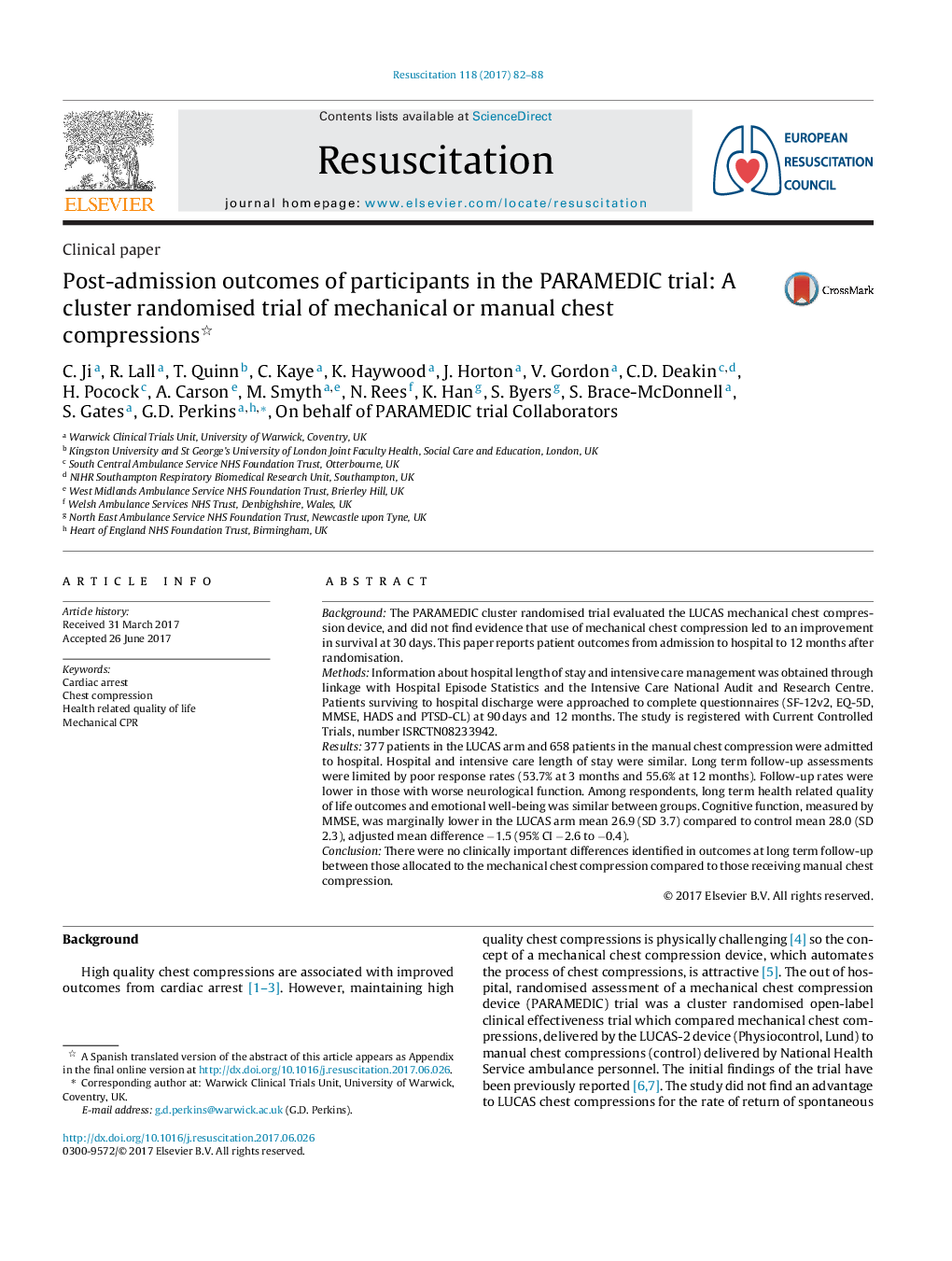| Article ID | Journal | Published Year | Pages | File Type |
|---|---|---|---|---|
| 5619830 | Resuscitation | 2017 | 7 Pages |
BackgroundThe PARAMEDIC cluster randomised trial evaluated the LUCAS mechanical chest compression device, and did not find evidence that use of mechanical chest compression led to an improvement in survival at 30 days. This paper reports patient outcomes from admission to hospital to 12 months after randomisation.MethodsInformation about hospital length of stay and intensive care management was obtained through linkage with Hospital Episode Statistics and the Intensive Care National Audit and Research Centre. Patients surviving to hospital discharge were approached to complete questionnaires (SF-12v2, EQ-5D, MMSE, HADS and PTSD-CL) at 90Â days and 12 months. The study is registered with Current Controlled Trials, number ISRCTN08233942.Results377 patients in the LUCAS arm and 658 patients in the manual chest compression were admitted to hospital. Hospital and intensive care length of stay were similar. Long term follow-up assessments were limited by poor response rates (53.7% at 3 months and 55.6% at 12 months). Follow-up rates were lower in those with worse neurological function. Among respondents, long term health related quality of life outcomes and emotional well-being was similar between groups. Cognitive function, measured by MMSE, was marginally lower in the LUCAS arm mean 26.9 (SD 3.7) compared to control mean 28.0 (SD 2.3), adjusted mean difference â1.5 (95% CI â2.6 to â0.4).ConclusionThere were no clinically important differences identified in outcomes at long term follow-up between those allocated to the mechanical chest compression compared to those receiving manual chest compression.
